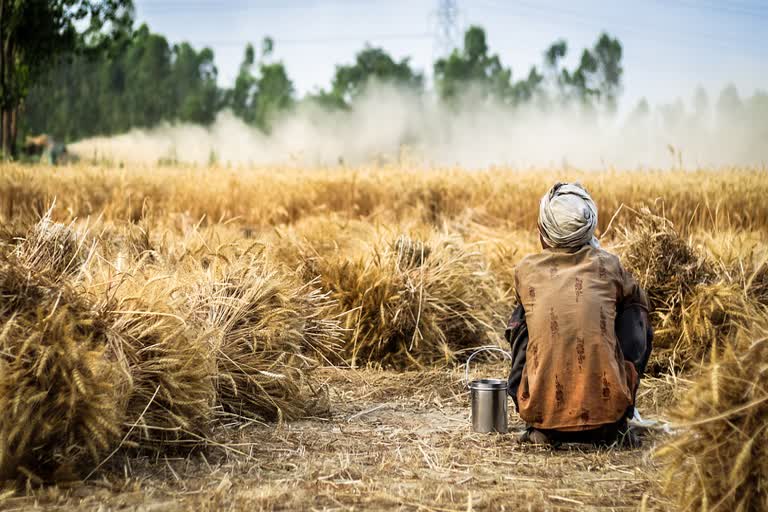New Delhi: While the minimum support price (MSP) set by the government has failed to benefit a large section of farmers, the crash in food prices as a result of excess supply has added to their woes.
Agri sector experts maintain that MSP benefits are very limited and hence most farmers are unable to recover their costs, let alone a fair price for their produce. A stagnant farm income poses a huge challenge to the Modi government's promise of doubling farmers' income by 2022.
"MSP is just a political announcement. Most farmers get Mandi (wholesale) price and not the MSP. In the market, transaction eventually takes place between private players. If a buyer has fixed a price, then farmers do not have an option. Only 7 per cent of farmers get MSP benefits," said Vijay Sardana, an Agri market expert.
Noted agriculture expert Ashok Gulati said that farmers have been in distress as they are unable to recover the cost of production.
Raising the MSP for major crops in July 2018, the government had termed the hike as historic. It had said that the price for Kharif crops of 2018-19 was based on the principle of fixing the MSPs at a level of at least 150 per cent of the cost of production.
Accordingly, the return over cost for various crops ranged between 50 and 97 per cent. The maximum MSP increase was seen in the case of Bajra with a hike of Rs 525 per quintal.
Read more: Savings deposits of banks up at Rs 39.72 lakh crore in 2018-19: RBI
Many experts attribute the farm sector distress to excess supply which has been reflecting on the foodgrain stock. The fall in foodgrain prices globally has also influenced the price in the domestic market.
This is the reason that the increase in MSP has not translated into an equal increase in farm produce prices on the ground. Due to the excess supply of food grains, the prevailing market price is lower than the MSP.
D.K. Joshi, Chief Economist at rating agency Crisil, expects the situation to get better in the current financial year as food inflation has inched up compared to the previous year.
"If you look at 2018-19, food inflation was only 0.1 per cent. This year it is expected to be marginally higher. This means that farmers will get better value for their products this year than what they got last year," he said.



